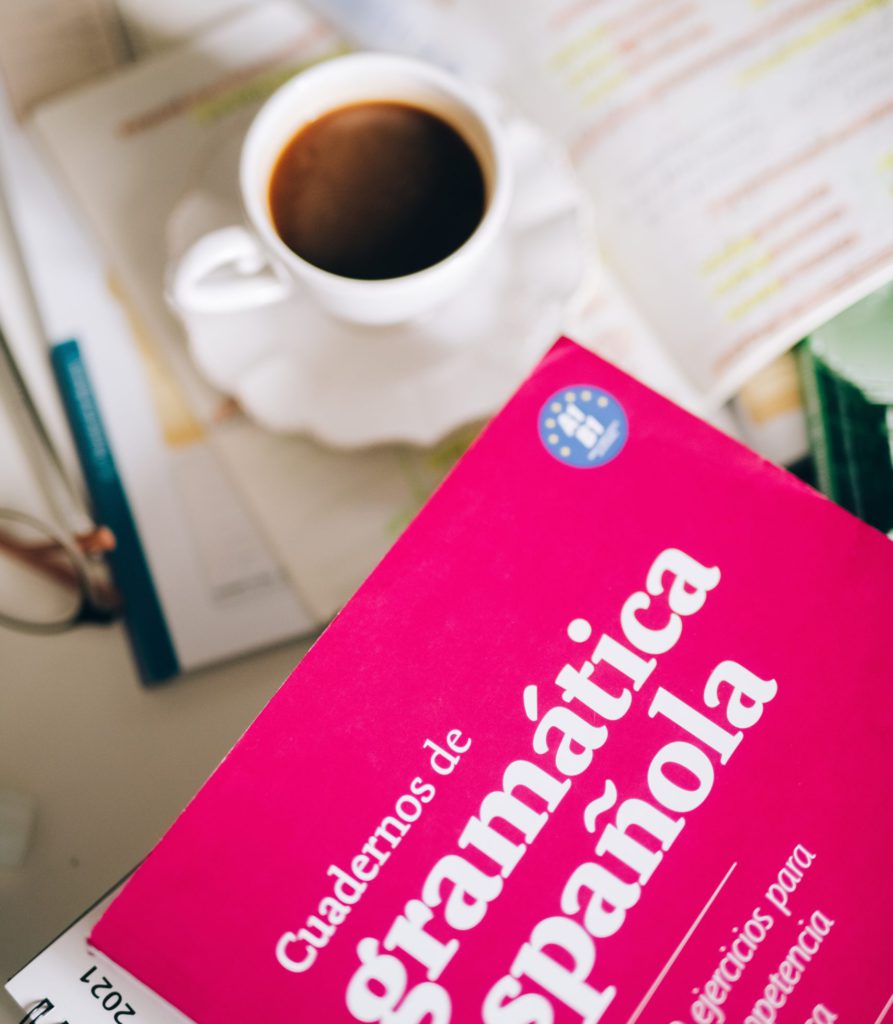We are often asked by High School students who are considering a semester or two abroad, just how hard it is to go to school in a country where you are not a native speaker. “Will I understand anything? Will I be able to have conversations and make friends?”
Vismaya attended High School Abroad in Spain and had this to say about learning a language:
Yes, I had some Spanish before Spain…but….
Before I left for Spain, I had taken two years of Spanish in high school (5 semesters to be precise). I placed into Spanish 3 my freshman year of high school, and that class was probably the most challenging language class I had ever taken — until I went to Spain, that is! Back home, I could probably string together two to three sentences after many seconds of thought. Because my spanish classes at school were so grammar-focused, I was unable to speak fluently since I always had to stop and piece together the grammatical parts of the sentence in order to say something correctly.
Regardless of my two years of Spanish, I left my first day of school in Spain feeling so incredibly lost. I remember feeling so distraught at home, and if my host family had not taken me on their nighttime supermarket adventures, I would have probably stayed home and cried.
What helped me learn
I began to practice speaking Spanish almost every day with my host dad during my second week in Spain (and I would help him with his English!). Every time he would correct me, I would find myself feeling a little embarrassed but it really helped me. I almost never repeated those mistakes ever again afterwards.
It was very hard for me to keep up with school assignments at first, but I was really lucky to have teachers who would give me assignments specifically designed to improve my Spanish skills. Apart from practicing with my host dad in Spanish everyday, I also started to read this book recommended to me by my literature teacher called La Tesis de Nancy which was a book in Spanish about a North American girl who came to Spain as a foreign exchange student (it fit so perfectly!); I meticulously annotated this book, writing down all the words I didn’t know and translating them. I also became a huge fan of this Spanish show recommended to me by my host family called El Internado. Watching this show without subtitles was also something that really helped me pick up words because the characters in the show were teachers and students who spoke slower and more clearly.
And one day, it clicked!
I cannot identify the moment Spanish became easier for me — the moment it “clicked”. But I know it happened. If not one moment, there was a definitely a series of moments that gave me a newfound confidence in the language. That confidence came with a new sense of alacrity. Not only did I feel like I could be myself in Spanish, but I also discovered that there were parts of me in Spanish I could not express in English.
One of the best feelings is to fully understand the meaning of a word in one language that does not have a raw translation into another language. It was on a call with a friend back home when I knew the exact word to describe his behavior in Spanish, but I failed to elucidate to him the significance of this word in English. Because it’s inexplicable. I still find myself unable to explain pesado to non-Spanish speakers.
People told me when I first arrived that I came with a level of Spanish much higher than most other foreigners. This was quite the encouragement, although so many days I would come home just wanting to fly back to California. While this may have been true, my level was still too low to survive in Extremadura (the fast and thick accent of this Andalucía region); one can hardly understand any of the Extremeño Spanish at first.
My level of Spanish comprehension shot up rapidly my first four weeks in Spain. Another helpful tool was my journal. Every day in class, I would jot down every single phrase or word I did not know. My classmates would even come up to me, observe what I was doing, and give me more phrases. My daily language exchange sessions with Roberto were also very useful as he would force me to speak in Spanish using different tenses.
My confidence grew
The first big change I noticed was my reduced time in conjugating verbs; in fact, I did not need to think anymore to conjugate verbs in Spanish.
The second and most notable change was my confidence. I no longer relied translators to come with me when I had to speak to people. I found myself willing to interact with more people because I could finally understand them. As I spoke to more people, I received the encouragement I needed when they understood me and complimented my language skills. I no longer began my conversations with ¿hablas inglés? (Do you speak English?).
I started a “Where Am I From?” game. One Thursday after art class, I decided to take a taxi back home. It was around 9 p.m. and although I would normally walk home, I needed to get back home quickly to work on a chemistry project. The taxi driver was a cheerful middle-aged man from Badajoz. He picked me up, and we had about four minutes of small talk before I asked him: ¿De dónde crees que soy? (Where do you think I’m from?). He told me that my accent was more articulate and guessed Madrid. When I told him I was from the United States, I swear he turned around at every proceeding stop light to look at my face. His reaction was one of those that gave me more confidence: ¡no me digas, hablas español estupendamente! (“No way! You speak Spanish stupendously!”).
As my ability to express myself in Spanish grew, those around me saw my personality transition from a more taciturn version of myself to one of outright enthusiasm.
Lessons Learned
Much like many others, I believed that simply existing in a foreign country would teach me the country’s language. If I had stuck to that “maxim”, I certainly would not have the level of Spanish I have now. The hours I have spent reading texts, re-reading texts, watching shows, asking questions, and journaling in Spanish have certainly contributed to the knowledge I gained.
I obviously still do not speak like a native. There are instances where I must think in English and translate into Spanish before I speak or write. I’ve learnt that language is a part of my identity, and that now, Spanish successfully embeds itself in me forever. I’ve learnt through this journey that when you speak with people in a language they can understand, they speak to you from the mind; when you speak to them in their native tongue, they speak to you from the heart. And the things they say from their hearts offer the best lessons, experiences, and memories which stay with you forever.
Thanks Vismaya for another insightful piece on your High School Abroad experience!
If you are a traveler abroad for High School and want to share your day-to-day challenges and wins, please send us a note!
To learn more about the program that Vismaya took, visit our website.



Leave a Reply